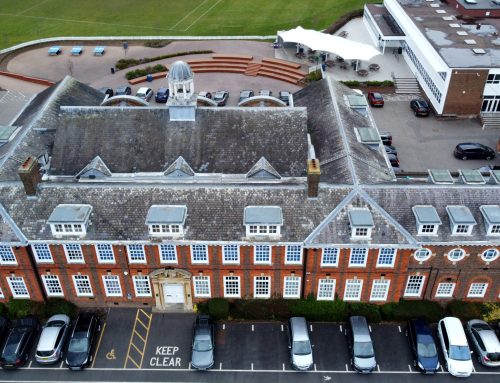Retail Property Surveys: A Must-Have for Investors and Retailers
In the dynamic world of commercial property, particularly within the retail sector, understanding the importance of retail property surveys is crucial. These surveys provide essential insights, mitigate risks, and lay the foundation for long-term success. Retail spaces are complex assets, subject to high footfall, intricate lease arrangements, and stringent regulatory scrutiny. Consequently, potential structural, legal, or regulatory issues can have significant ramifications. Engaging a professionally conducted retail property survey, especially by a RICS-accredited firm, is indispensable.
What Exactly Is a Retail Property Survey?
A retail property survey is a comprehensive inspection and analysis of a commercial retail space. It evaluates the building’s physical condition, compliance with legal and planning regulations, and suitability for its intended use. Depending on specific needs, this may include:
- Measured Building Surveys: Providing accurate representations of the property’s dimensions and layout.
- Topographical Surveys: Detailing the site’s features and elevations.
- Structural Inspections: Assessing the integrity of the building’s structure.
- Condition Reports: Documenting the current state of the property.
- Lease Plans: Outlining the demised premises for lease agreements.
- Boundary Assessments: Clarifying property lines and potential disputes.
Each survey serves a distinct purpose, but collectively, they offer a holistic view of the asset.
Why Investors Should Prioritise Surveys
Investing in retail property without a thorough survey can lead to unforeseen challenges. Surveys offer:
- Risk Management: Identifying structural defects or unauthorised alterations.
- Accurate Valuation Support: Ensuring the property’s value reflects its true condition.
- Futureproofing: Early detection of maintenance needs to prevent costly repairs.
- Negotiation Leverage: Providing factual data to support price negotiations.
By uncovering potential issues early, investors can make informed decisions, safeguarding their investments.
For Retailers: It’s About More Than Just Bricks and Mortar
For retailers, the physical condition and legal boundaries of a property directly impact business operations and compliance obligations. Surveys ensure:
- Operational Continuity: Preventing disruptions from structural issues or legal disputes.
- Health and Safety Compliance: Ensuring the premises meet regulatory standards.
- Informed Fit-Out Planning: Facilitating efficient space customisation and design.
By addressing these aspects proactively, retailers can avoid delays and additional costs associated with unforeseen property issues.
What’s Typically Included in a Retail Survey Report?
While specifics vary based on property type and client requirements, a typical retail survey report includes:
- General Condition Assessment: Evaluating roofing, dampness, HVAC systems, and utilities.
- Legal and Planning Compliance Check: Ensuring adherence to relevant regulations.
- Identification of Hazardous Materials: Detecting substances like asbestos.
- Energy Performance Assessment: Reviewing the property’s EPC rating.
- Structural Integrity Evaluation: Assessing the building’s stability.
- Recommendations for Remedial Work: Suggesting necessary repairs or improvements.
This comprehensive reporting supports both immediate decision-making and long-term strategic planning.
Surveys and the Lease Process
For those leasing retail properties, surveys are equally vital. A Schedule of Condition documents the property’s state at the lease’s commencement, protecting tenants from liability for pre-existing issues upon lease termination. This detailed record can prevent disputes and provide clarity for both landlords and tenants.
Why Choose RICS-Accredited Surveyors?
The Royal Institution of Chartered Surveyors (RICS) sets the benchmark for professionalism in the property sector. Engaging a RICS-accredited firm ensures:
- Professional Integrity: Adherence to strict ethical standards.
- Standardised Reporting: Consistent and regulated survey documentation.
- Impartial Expert Advice: Objective assessments based on extensive knowledge and experience.
Choosing a RICS-accredited surveyor guarantees a high level of service and reliability.
Tailored Surveys for Different Retail Environments
Retail properties vary widely, and surveys should be tailored accordingly. Whether it’s a high-street shop unit, a retail park warehouse, a boutique café in a listed building, or a new-build shopping centre, each environment presents unique challenges and requirements. Customised surveys address specific legal frameworks, accessibility needs, and potential planning constraints pertinent to each property type.
Digital Integration and Measured Surveys
Modern retail fit-outs increasingly rely on digital tools. Measured surveys provide accurate CAD drawings, 3D models, and point-cloud data, supporting:
- Interior Design: Facilitating precise space planning.
- Architectural Work: Assisting in detailed design processes.
- Contractor Coordination: Ensuring all parties have accurate property dimensions.
This digital integration streamlines the design and construction phases, enhancing efficiency and accuracy.
Common Pitfalls Without a Survey
Neglecting to conduct a thorough survey can lead to several issues, including:
- Undetected Water Ingress: Leading to structural damage and mould.
- Hidden Asbestos: Posing health risks and requiring costly removal.
- Outdated Electrical Systems: Potentially hazardous and non-compliant with current standards.
- Boundary Disputes: Resulting in legal conflicts with neighbouring properties.
- Regulatory Breaches: Incurring fines and necessitating remedial work.
These problems not only incur additional costs but can also cause significant delays and damage reputations.
Retail Survey Costs vs Value
While some may question the upfront cost of a survey, it’s a prudent investment compared to the potential expenses of unforeseen legal fees, repair costs, or operational delays. Think of it as insurance that actively prevents problems, offering peace of mind and financial protection.
Conclusion: Investing in Certainty
Retail property surveys are more than just formalities; they are essential tools for informed decision-making, risk mitigation, and strategic planning. Whether you’re investing in a new shopfront, expanding your brand, or subletting part of a commercial unit, starting with a comprehensive understanding of the property is crucial. Engaging a reputable surveyor ensures you’re not just getting a survey; you’re gaining a strategic partner in your property journey.
Need expert advice or a quote? Contact Subvision Surveys today for a tailored, no-obligation consultation.






Leave A Comment